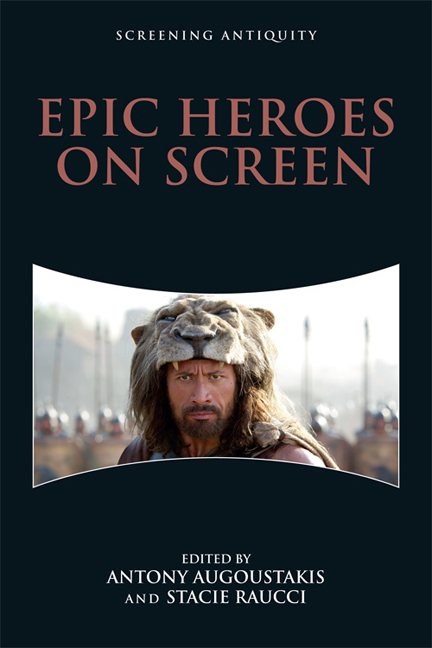6 - Russell Crowe and Maximal Projections in Noah (2014)
Published online by Cambridge University Press: 24 April 2021
Summary
If personality is an unbroken series of successful gestures, then there was something gorgeous about him …
(Narrator Nick Carraway, explaining the allure of Jay Gatsby, in F. Scott Fitzgerald's novel The Great Gatsby (1925))INTRODUCTION
This chapter explores how the lead actor performance of Russell Crowe in Darren Aronofsky's unconventional biblical epic Noah (2014) takes up Ridley Scott's blockbuster film Gladiator (2000) as a specific screen intertext by using what I call “maximal projections.” By coining the phrase “maximal projections,” I mean that Crowe plays the role of the Old Testament patriarch Noah using a series of deliberately referential gestures to his character of Maximus, the general turned gladiator, in the earlier film. Further, I maintain that Crowe makes this intentional artistic choice to invite the audience of Noah to recognize Maximus in his performance in the biblical epic in order to captivate and appeal to them. As film historian Jim Cullen observes:
Actors vividly display the act of choice central to the artistic process. Putting aside the fact that any acting performance includes countless renditions that are shot out of sequence or discarded on the cutting room floor, watching a movie involves witnessing an inexhaustible array of choices in language, posture, expression, and setting. A century of experience has taught us that some people make these choices so strikingly that we will watch them repeatedly not only in the same movie, but in movie after movie.
RUSSELL CROWE'S STAR TEXT
The casting of Crowe, who won the Academy Award for Best Actor for the role of Maximus in Gladiator, as the title patriarch in Noah raises the theoretical question of his celebrity “star text” that is being interpreted or “read” by the audience as they watch him on screen (Figures 6.1 and 6.2). As originally framed by Richard Dyer in his influential book Stars, an actor's distinct star image can both affect the production of meaning in a film and manipulate the arousal of emotions and expectations in viewers. That is, when a famous actor takes on a role, they bring one or more previous roles to the new performance; thus their star text powerfully influences how an audience engages with their previous roles within the new performance.
- Type
- Chapter
- Information
- Epic Heroes on Screen , pp. 93 - 110Publisher: Edinburgh University PressPrint publication year: 2018



